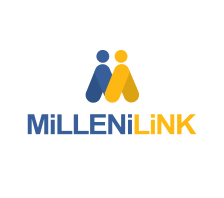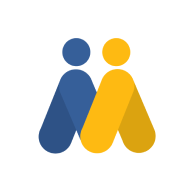Generation Z in the Workforce (Part 4)
An article from LinkedIn Talent Solutions titled “Does Gen Z Need Fixing? Or Just a Little Understanding?” sparked conversations within the walls of the Millenilink office. We spoke to three Millenilink Gen Z employees and tried to better understand the assumed ‘generation gap’.
This is our last installment, and we will be discussing Learning and Growth Opportunities in the workplace! Make sure to read Part 1, Part 2 and Part 3.
Meet our Gen Z interviewees:
Ayesha, Technical Recruiter: Ayesha recently graduated from York University where she attained a Bachelor of Human Resource Management degree. Ayesha held multiple industry-specific roles that were related to her career goals while still in high school. As Ayesha continues to work in Tech Recruitment, she has plans to pursue a CHRP certification.
Bolu, Web Marketing Intern: Bolu is entering her third year in Human-Computer Interaction at the University of British Columbia (UBC). Bolu has held 3 developer roles, as well as extra-curricular positions and activities in Social Media Marketing and Hackathon achievements that support her future career goals.
Madison, Tech Labor Market Research Intern: Madison is a 4th year student from Western University, pursuing a Bachelor of Management and Organizational Studies with a specialization in Consumer Behavior. Madison held an industry-related job while in school, and multiple extra-curricular roles related to specific career goals varying from sponsorship to journal review.
Learning and Growth
For young generations, especially those entering a competitive workforce, it is imperative for them as employees to remain valuable to organizations. Companies that offer growth opportunities to their employees can help shape their professional development, to best cater to their role within the company.
Ayesha made great points about how a company can support employees’ growth and learning initiatives in easy other than financially; Companies can be willing to provide employees time away from the office for career-related educational courses, provide them leaves for certification exams, flexibility of hours to allow for studying, all aspects can be of an equal or even greater benefit to employees looking to develop their career through further education.
Learning can come in the shape of other experiences, Bolu offered insight into how she was able to build her resume and portfolio. Bolu took on various experiences, extracurriculars and hackathons through UBC and other University boot camps to help build her portfolio without relying on internships, where she may not have had the same amount of input and agency over the project. Using these experiences Bolu was able to build up her portfolio throughout the semesters and develop her skills and experience in the roles she would soon pursue. Similarly, Madison pursues extracurricular positions within her university that support her interests for future careers, with positions varying from Sponsorship to Journal Review, Madison hoped to develop and refine the skills she will later use in her future career.
Learning and growth aren't just perks offered by the employer—they're essential investments for the younger generations. By fostering continuous development, companies not only empower employees but also ensure their long-term relevance and success in an ever-evolving workforce.
Generation Z in the Workforce, and the Workplace
We have had three employees’ inputs, they all come from different educational backgrounds and are pursuing different industries, and yet, we see that our Millenilink Gen Z’s hold the most value to Flexibility, Work Environment, and Learning and Growth opportunities. The belief that “younger generations are more deficient than their elders” is a glaring illustration of the misunderstanding older generations have of Gen Z, one that’s possibly stronger than with any generation before. This misunderstanding can be attributed to many things, but one aspect that this could be linked to is the way Gen Z utilizes technology, how they have been taught to use software and devices to enhance their learning and their outputs, something older generations mistakenly coin as “lazy” as it has also changed the channel and manner in which they communicate and socialize.
In a new landscape of employee attraction and retention, Gen Z is more elusive than ones before it, this could be due to the COVID-19 pandemic and the shift to remote work, once this was proven to be a possible work model by businesses, it is not hard to understand why a generation who has seen the possibility for remote/hybrid work to be resistant to a push back to fully in-office work with no lenience offered for the possibility of flexibility.
Regardless of desires for hybrid work by our subjects, there were clear indications that they are not dying on the hill of work location, they are much more willing to differ on these workplace values than how they are perceived to be. Like any generation before them, Gen Z prioritizes career growth opportunities and is willing to put aside what they desire to achieve their professional goals, just like all those who came before them. Generation Z’s entrance into the workforce might look different than those before it, but it is a difference in the process we see, not a difference in potential, goals or overall achievements.
Gen Z proves that they are willing to put in the work, but the questions rests upon the type of compensation they desire, beyond monetary, compensation can be given with work-from-home allowances, flexibility, work culture, growth and learning opportunities, and many other factors that prove to be valuable to the newest working generation. Millenilink founder Sabe Mpofu commented on this topic, saying that when focusing on Gen Z employees and candidates, flexibility and values for wellness are a large part of the compensation structure for Gen Z’s in the workforce, and a company that understands the importance of these factors will be successful in attracting this new wave of talent.
Over the course of this series, we've explored the Tech Natives of Gen Z and their uncanny comfort with digital tools (we can't forget how they breezed through their early tech exposure). Then we dived into how they're preparing for the workforce, often long before they’re expected to, by navigating career paths with a laser focus at an earlier age than any generation before. When it comes to flexibility and work environment, Gen Z knows what they want—task-based work, room for creativity, and most importantly, a healthy work-life balance. But don’t be fooled—learning and growth are the real deal-clinchers for this generation. They aren’t just clocking in and out, they’re chasing every opportunity to grow and develop professionally.
At the end of the day, Gen Z isn't so different from the generations before them—they want to make an impact, grow their skills, and thrive. But they’re doing it on their terms, with a blend of tech savvy, flexibility, and a hunger for knowledge. Whether it's through remote work, skill-building side gigs, or simply finding their niche, they’re rewriting the rules of the workplace, and we can't wait to see where they take it next.
Thanks for following along in our Gen Z in the Workforce series! Stay tuned for more insights from Millenilink and don’t forget to subscribe to our newsletter for career opportunities, tips, and more!
Check out the previous parts to read our insights on our previous Gen Z topics: Early Tech Natives, Workforce Preparedness, Flexibility and Work Environment, and Learning and Growth.
Subscribe to our newsletter to make sure you don’t miss updates on career opportunities, and other blogs!


